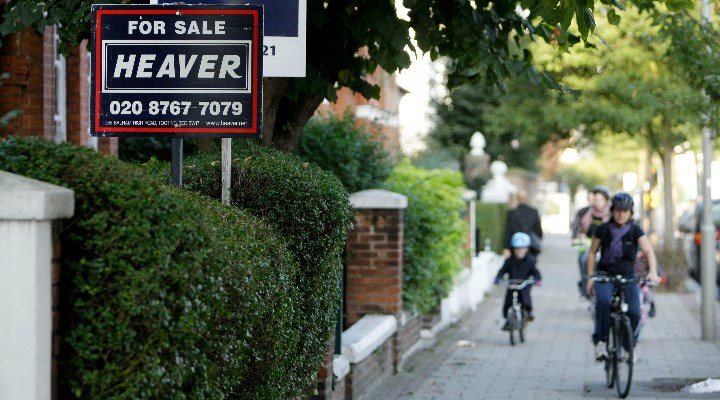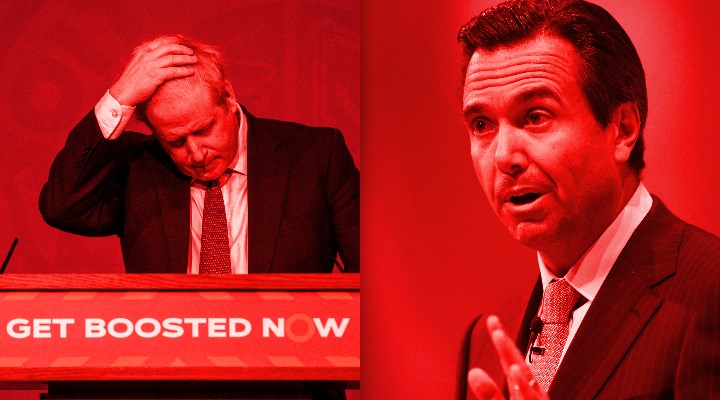
UK house prices are the economic phenomenon polarising our experience of life.
If you're lucky enough to have bought a decade ago or more, you’re probably sat on a nice increase in the value of your home.
But if you’re not in that camp, and are struggling to get a deposit together because rents are high and it’s difficult to save in a still-low-interest-rate environment, then the dream of one day owning your own property may need a much longer time horizon, if it’s realistic at all.
What’s Going On?
Despite fears the pandemic might result in a house price dip, UK house prices increased by 10.2% over the year to October 2021, according to the Office for National Statistics (ONS).
By that time, the average UK house price was £268,000, £24,000 higher than the year before, the ONS said.
According to the House of Commons library, 65% of households lived in a home they owned in 2019/20. The rate of home ownership has declined, however, by as much as 71% from 2003 levels.
It’s London Fuelling the Price Boom, Right?
Not so. In October last year, the ONS said London was the region with the lowest annual growth (of 6.2%). Just two days ago, the Evening Standard reported London prices were being outpaced by the UK average as people continued to look outside the capital for solutions to their living situations. An easing in lockdown rules over the last six months has not weakened that trend.
Charlotte Nixon, a mortgage expert at Quilter, says people have been looking further afield for a place to work:
"It’s no surprise that certain forms of housing stock like detached houses have risen over 10% compared to inner city flats considering the conditions many people were faced with during lockdown," she says.
"Similarly, we are seeing people look at properties that pre-pandemic would have been too far from their place of work. However, with the rise of hybrid working, many are willing to accept a longer commute if it is only done a few times a week."
What Was the Impact of the Stamp Duty Holiday?
Stamp duty is a tax paid on purchases and increases in line with the value of the property. In response to the pandemic, the Government reduced rates from June 2020 to July 2020, finally phasing out the relief completely by October 1, 2021.
It is popularly thought to have been an "easy win" designed to stimulate activity in the housing market and its effect is hotly debated by estate agents and think tanks.
There is no doubt that it helped to push up prices, as people saw a window of opportunity to buy and pay less tax. Demand went up faster than supply, and prices followed suit. However, there was more at play than just that.
If you were cash-rich enough to be considering buying, it’s possible that the pandemic meant you had ended up putting more money aside anyway, which would’ve handed you a bit more purchasing power and increased your aspirations. The pandemic also led to that aforementioned demand for leafier properties with gardens and space, which resulted in more people looking to buy outside of urban areas. That too was fuelling demand anyway.
"The stamp duty holiday has arguably worked too well," Nixon says.
"The policy brought unprecedented demand to the market, which was also fuelled by the race for space. The laws of supply and demand subsequently pushed house prices up to eye-watering levels, and despite the stamp duty holiday no longer being in play, prices continue to stay high as the country grapples with dwindling housing stock."
Hang On ... Supply and Demand?
Put simply, the "supply" of housing is how many houses there are available to buy (or rent). Demand is how many people (or families) want them at any one time.
So Which of the Two is More Important?
This question is keenly debated by economists. Some would argue the failure by governments of all stripes to regenerate and replace Britain’s housing stock quickly enough has put housing of all kinds at a premium, driving prices up and making even smaller properties incredibly expensive. However, don’t our historically-low interest rates.
When you get a mortgage, you pay interest on it. If interest rates are trending lower, you can in theory afford a more expensive house, as you’ll be able to afford to borrow more money. That boosts demand too. In reality, supply and demand have not been antagonists here. They’ve been happy bedfellows, driving up prices and making housing a more stressful issue than ever before.
"One of the other pressures on the market squeezing property prices higher and higher is the availability of cheap money, enabling more people to enter the market as they take advantage of low-cost mortgage deals," Nixon says.
"Any significant interest rate rise is likely to take the wind out of the market's sails, as potential buyers struggle to find the cheap deals they have been used to."
What About Second Homes?
The UK is a nation of homeowners, which differentiates it from other countries on the continent where renting is more mainstream (and social housing stock is better).
But it is also a country of second home owners. According to Inside Housing, around 772,000 households had a second residence in 2018/19, 445,000 of which are in the UK.
If you had the cash, then, the stamp duty holiday might have been an opportunity to buy twice, even if that meant your second home lay empty for several months a year, unused.
There are economic benefits to second home ownership, such as the stimulus the market provides to consumer goods and high street DIY brands (as people like to do up homes they buy). The economy gets two bites of the cherry here, as properties are often done up for sale, before being changed again by their new owners.
These can be turned into holiday lets, which may aid local tourism in the era of the "staycation". The Treasury's tax coffers also get a boost too, as owning more than one home usually means you pay a higher rate of stamp duty, even with last year's holiday.
I'll Stick to Just Having One Home, Thanks
All very well. But the problems don't stop there. Don't forget that Britain's ageing population is also a factor in limiting access (supply) to housing.
As older people live for longer, they might choose to stay in their homes for longer, precluding houses from being released back on to the market and sold to a new generation of buyers. These tend to be the "family homes" that are in such short supply.
Economists have debated the merits of incentivising the elderly to downsize from larger properties whose space is no longer needed in practice, but the topic is understandably politically sensitive. Likewise, we are still a long way away from having a long-term solution to social care, whose current intricacies often lead people to choose to receive care in their homes, on which they might understandably remain dependent.





























